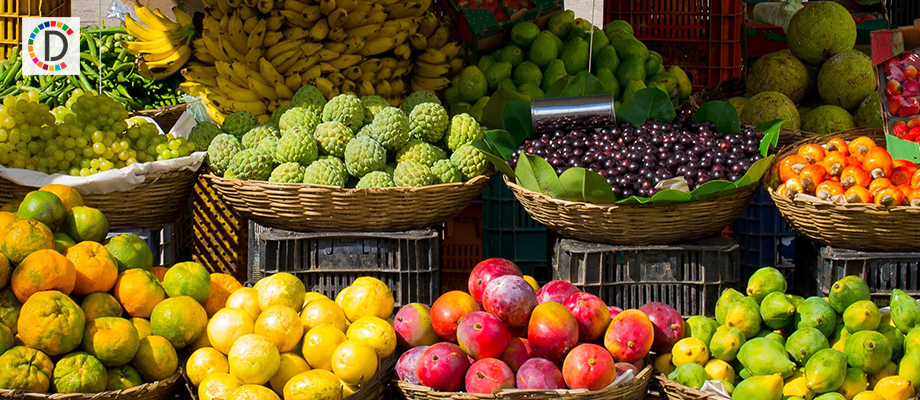US designates Colombia as failing to cooperate in the drug war for first time in nearly 30 years
The Trump administration on Monday added Colombia to a list of nations failing to cooperate in the drug war for the first time in almost 30 years, a stinging rebuke to a traditional US ally that reflects a recent surge in cocaine production and fraying ties between the White House and the countrys leftist president.Even as it determined that Colombia had failed to comply with its international counternarcotics obligations, the Trump administration issued a waiver of sanctions that would have triggered major aid cuts, citing vital US national interests.

- Country:
- United States
The Trump administration on Monday added Colombia to a list of nations failing to cooperate in the drug war for the first time in almost 30 years, a stinging rebuke to a traditional US ally that reflects a recent surge in cocaine production and fraying ties between the White House and the country's leftist president.
Even as it determined that Colombia had failed to comply with its international counternarcotics obligations, the Trump administration issued a waiver of sanctions that would have triggered major aid cuts, citing vital US national interests. Nonetheless, it is a major step against one of the United States' staunchest allies in Latin America, and it could further hamper efforts to restore security in the countryside, according to Adam Isacson, a security researcher at the Washington Office on Latin America.
The US last added Colombia to the list, through a process known as decertification, in 1997 when the country's cartels — through threats of violence and money — had poisoned much of the nation's institutions. It ''is a blunt tool and a huge irritant in bilateral relations that goes well beyond drug issues and makes cooperation far harder in any number of areas,'' Isacson said. ''That's why it's so rarely used.'' The president at the time, Ernesto Samper, was facing credible accusations of receiving illicit campaign contributions from the now-defunct Cali cartel and a plane he was set to use for a trip to New York to attend the UN General Assembly session was found carrying 4 kgs of heroin.
A remarkable turnaround began once Samper left office. Successive US administrations — both Republican and Democrats — sent billions in foreign assistance to Colombia to eradicate illegal coca crops, strengthen its armed forces in the fight against drug-fuelled rebels and provide economic alternatives to poor farmers who are on the lowest rungs of the cocaine industry.
That cooperation, a rare US foreign policy success in Latin America, started to unravel following the suspension a decade ago of aerial eradication of coca fields with glyphosate. It followed a Colombia high court ruling that determined the US-funded programme was potentially harmful to the environment and farmers. A 2016 peace accord with the Revolutionary Armed Forces of Colombia, the nation's largest rebel group known as FARC, also committed Colombia to rolling back punitive policies likened to the US spraying of Agent Orange during the Vietnam War in favour of state building, rural development and voluntary crop substitution. Since then, cocaine production has skyrocketed. The amount of land dedicated to cultivating coca, the base ingredient of cocaine, has almost tripled in the past decade to a record 253,000 hectares in 2023, according to the latest report available from the UN Office on Drugs and Crime. That is almost triple the size of New York City. Along with production, drug seizures also have soared to 654 metric tons so far this year. Colombia seized a record 884 metric tons last year.
But unlike past governments, manual eradication of coca crops under Colombian President Gustavo Petro's leadership has slowed, to barely 5,048 hectares this year — far less than the 68,000 hectares uprooted in the final year of his conservative predecessor's term and well below the government's own goal of 30,000 hectares.
Petro, a former rebel himself, also has angered senior US officials by denying American extradition requests as well as criticising the Trump administration's immigration crackdown and its efforts to combat drug trafficking in neighbouring Venezuela. ''Under my administration, Colombia does not collaborate in assassinations," Petro said on Sep 5 after the US military carried out a deadly strike on a small Venezuelan vessel in the Caribbean that the Trump administration said was transporting cocaine bound for the US Under US law, the president annually must identify countries that have failed to meet their obligations under international counternarcotics agreements during the previous 12 months. Last year, only three countries — Bolivia, Burma and Venezuela — were added to the list among the 23 nations that were listed as major drug transit or drug-production countries. In all three cases, the Biden administration waived sanctions, saying that programmes supporting the countries are vital to US national interests.
(This story has not been edited by Devdiscourse staff and is auto-generated from a syndicated feed.)
ALSO READ
Trump to file $15 billion defamation and libel lawsuit against New York Times
UPDATE 3-US appeals court rejects Trump bid to oust Fed's Lisa Cook
Appeals court rejects Trump's bid to unseat Federal Reserve governor Lisa Cook ahead of rate vote
UPDATE 6-Trump renews calls for ending quarterly reports for companies
UPDATE 1-Trump administration to give $500 million to historically Black and tribal colleges










